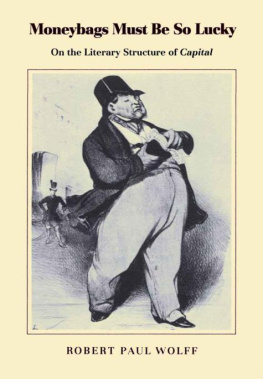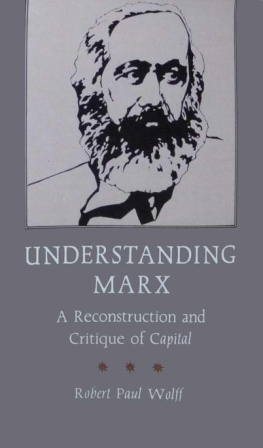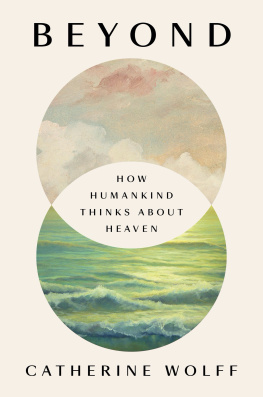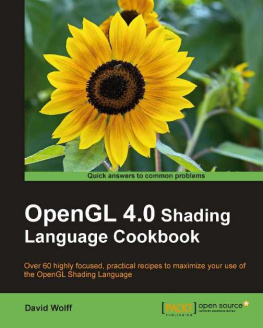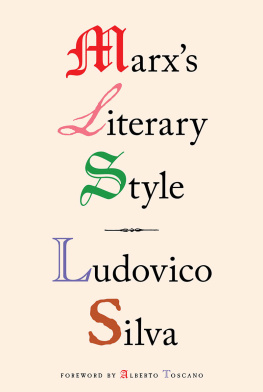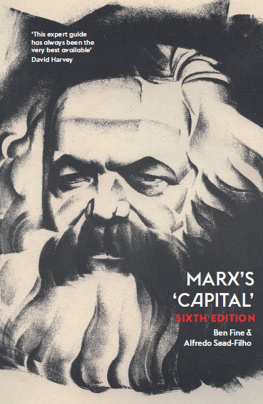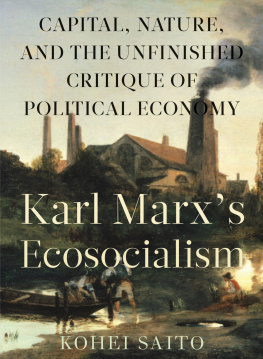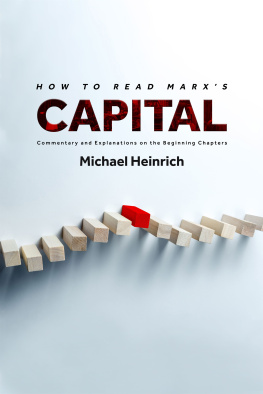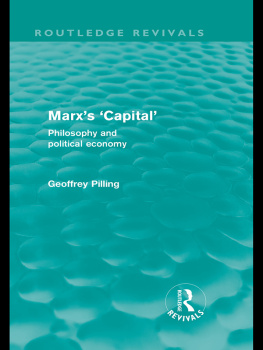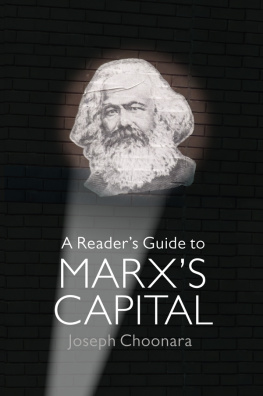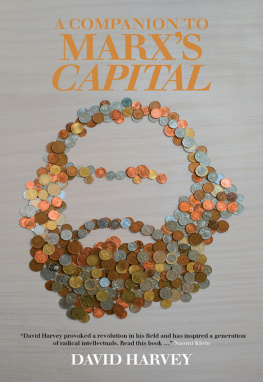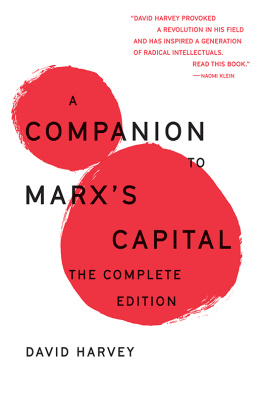Published by Society for Philosophy & Culture at Smashwords Copyright 2013 Robert Paul Wolff
Moneybags Must Be So Lucky
On the Literary Structure of Capital
Robert Paul Wolff
Society for Philosophy & Culture
Wellington
2013
Published by
Society for Philosophy & Culture
Wellington, NZ
2013
books@philosophyandculture.org
Author
First Published
The University of Massachusetts Press Amherst
1988
ISBN: 978-1-301-19008-9
For Susie
My once and future love
In order to be able to extract value from the consumption of a commodity, our friend, Moneybags, must be so lucky as to find, within the sphere of circulation, in the market, a commodity, whose use-value possesses the peculiar property of being a source of value, whose actual consumption, therefore, is itself an embodiment of labour, and, consequently, a creation of value. The possessor of money does find on the market such a special commodity in capacity for labour or labour-power.
Capital ,
Volume one, Chapter 6,
The Buying and Selling of Labour-Power
Introduction
These reflections on the relation between the literary form and philosophical message of Capital were originally delivered at the Amherst campus of the University of Massachusetts as the Romanell-Phi Beta Kappa Lectures for 1984-85. In their present form, they constitute the second of what will eventually be a trio of books devoted to a reinterpretation of Marxs great work. The entire undertaking dates from the late 1970s, when I began an attempt at interpretation and understanding that has occupied most of my scholarly attention for the past decade.
I had read volume one of Capital in 1957 as a graduate student and, like most progressive intellectuals of the sixties, I had pored over the early humanist writings the 1844 Manuscripts , the German Ideology , On the Jewish Question, and so forth. I even considered myself some sort of socialist, though what that meant was a bit unclear to me. But the opening chapters of Capital had mystified me, and I accepted, unthinking, the received opinion that Marx was something of a crackpot when it came to economic theory.
Then, in the fall of 1976, I offered a graduate seminar called Classics of Critical Social Theory and, as an act of bravado, assigned Capital , volume one, to open the course. Almost from the first moment that I began to read through the text, as preparation for teaching, I was seized by a vision of Marxs enterprise that has guided my investigations ever since. As I worked through the extraordinary first chapter on value, with its bizarre mixture of classical economics and Hegelian metaphysics, couched in a bitterly satirical language quite unlike anything I had encountered elsewhere in political philosophy or the social sciences, I became more and more powerfully convinced that Marxs abstract theories of price and exchange, his angry critique of the injustices of capitalism, his complex conception of the objectively mystified character of bourgeois social reality, and his richly metaphorical invocation of the religious, political, and literary images of the Western cultural tradition, were so integrally connected that each could be understood only in relation to all the others.
The first task confronting me was a serious engagement with the technicalities of Marxs economic theories, and in this I was lucky to have, ready to hand in the Economics Department of the University of Massachusetts, the largest collection of Marxist economists in North America. Guided by the reading suggestions and periodic explications of Sam Bowles, Herb Gintis, and others, I undertook to master at least the elements of the modern mathematical reinterpretation of Marxs economics that was being carried out by first-rate theoretical economists around the world.
My relationship to the literary side of the enterprise is different. I am not a student either of literary critical theory or of textual interpretation. My principal acquaintance with each came through my familiarity with the scholarly and critical work of my former wife, Professor Cynthia Griffin Wolff. One reviewer of this manuscript speculated about whether I was a naive reader or a sophisticated student of literary thinking, and ended by paying me the enormous, but unfortunately unjustified, compliment of assuming the latter. As a consequence, I engage from time to time in the critical equivalent of reinventing the wheel. For example, the extended remarks in the first lecture on the relationship of Plato to his several audiences re-plough ground long planted and harvested some might even say exhausted: by the critical community. Nevertheless, I have chosen to publish the text without a burdensome critical apparatus. My purpose is to attempt not merely to explicate Marxs text but also to re-invoke something of its affective power.
The third, or philosophical side, of the triangle was, as Eliza Doolittle would put it, mothers milk to me, and seemed to pose the most manageable challenge. Since that time, I have come to see that this last portion of the enterprise is actually the conceptually most problematic, requiring as it does a thorough sorting out of the long-debated issue of methodological individualism and the analysis of social reality.
I conceived the product of these investigations as a single lengthy volume in which I would exhibit the inner connection between the linear equations of Marxian value theory and the satiric thrust of Marxs literary invocations, all in the aid of explicating the objectively contradictory character of capitalist social reality in its ironic relation to those of us who strive to understand capitalism from within.
Fortunately, concerned friends called my attention to the fact that there is a very small audience indeed for a book that is part linear algebra, part literary criticism, and part methodology of the social sciences. Good sense prevailed, and I determined to recast my reading of Capital in three shorter volumes, each of which would be independently accessible to an appropriate audience. The first volume, devoted to the mathematical reinterpretation of the economic theories, appeared several years ago. With the publication of the present volume, there remains only the hardest part of the job to complete the philosophical weaving together of the two in an explication of Marxs theory of social reality. Long experience has taught me not to make promises that I am uncertain to fulfil, but I can at least hope that the third volume will appear with no greater delay than has separated the first from the second.
There is, of course, nothing novel in construing Capital as a work of literary art, over and above its character as a work of theoretical economics. The first person to understand this was the author himself. He was notoriously dilatory about getting manuscript to the publisher, and for several years before the actual publication of volume one in 1867, his letters are full of predictions of its appearance, apologies for the delay, promises that it would be delivered to the printer, and even, if I interpret one letter correctly, wagers with Engels. In a letter of 31 July 1865, Marx offers the following justification to Engels for the delay in publishing the work that had already taken him so long to complete:
Now as concerns my work, I will pour out for you some pure wine [a reference to Engelss remark about the twelve bottles, quoted in footnote 3]. There are still three chapters to write in order to complete the theoretical part (the first three books). Then there is still the fourth book, the historical-literary one, to write, which is for me relatively the easiest part, inasmuch as all the problems have been solved in the first three books, this last being therefore more a repetition in historical form. But I cannot bring myself to send off anything before the whole lies before me. Whatever shortcomings they may have, [this phrase is in English in the original ed.], the merit of my writings is that they are an artistic whole, and that is only attainable by my method, never to allow them to be printed before they lie before me as a whole .
Next page
